Honoring Emory Veterans
How serving in the military shaped the lives and work of staff, faculty and students
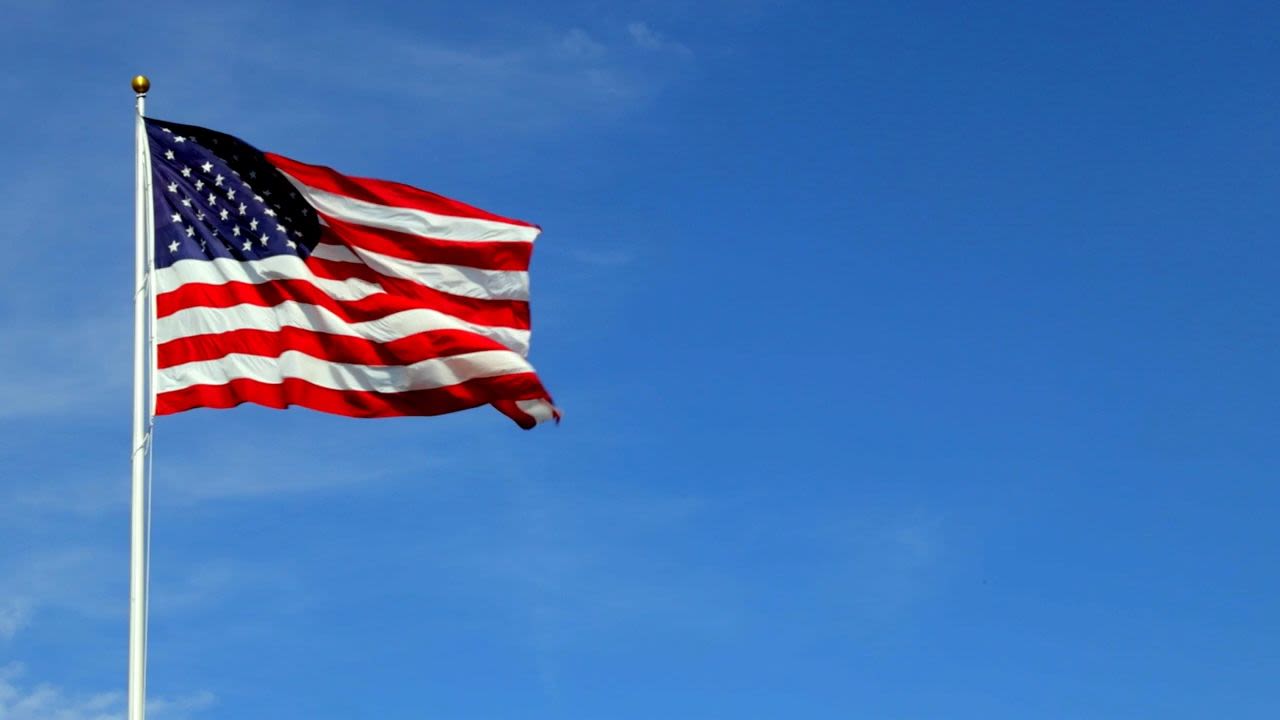
Honoring Emory Veterans
How serving in the military shaped the lives and work of staff, faculty and students
By Michelle Ricker | Nov. 10, 2022

For civilians, Veterans Day is a time to thank those who have served. For veterans, it's also a time to reflect on how military service has shaped their lives.
Emory works to support veterans in multiple ways, from education benefits for students to the Emory Healthcare Veterans Program, the Emory Law Volunteer Clinic for Veterans, the Veterans Affairs Nursing Academic Partnership and more.
But what may be less well-known to the Emory community is how many veterans hold roles across the university and how the experience they gained through serving informs their work today.
We've highlighted 13 Emory veterans to offer insight into their experiences and professional lives.

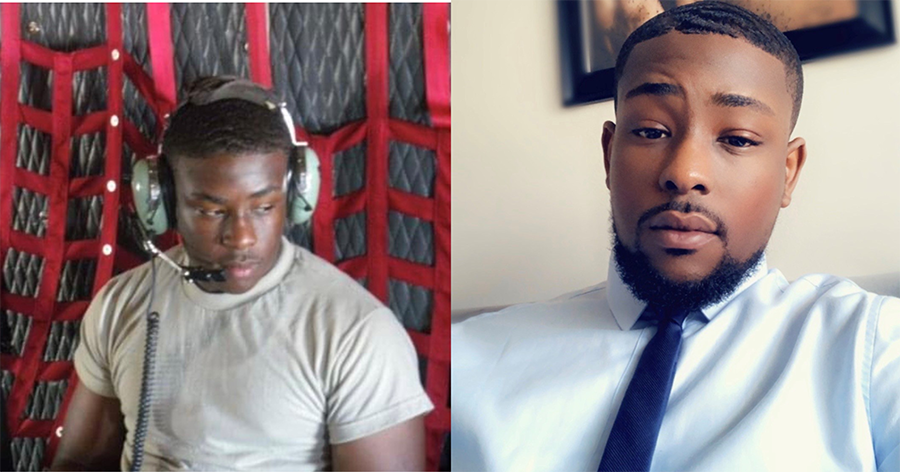
Antwoine Giles
- Emory role: Safety specialist II, Environmental Health and Safety Office
- Military service: 10 years in the U.S. Air Force as a heavy aircraft mechanic for a C-130 special operations squadron and safety technician. Has been stationed all over the world, includng the United Kingdom and parts of the Middle East and Africa. In the U.S., has lived and trained in Georgia, South Carolina, Texas, Arkansas, Arizona, California and Nevada.
“Working on Emory’s campus reminds me of a military installation as far as the vastness of jobs required to keep the university functioning at such a high level and the cultural melting pot of employees that allows everyone to feel welcome. That’s what attracted me to Emory. In my line of work, you need to a know a little bit of everybody’s job so you can ultimately keep them safe. Here on campus, Emory allows me to keep my skills sharpened — one day I could be talking to a mechanic or HVAC technician about safety topics and the next day I could be talking to a professor or doctor. Either way, I want to keep them safe while they’re doing their jobs.”
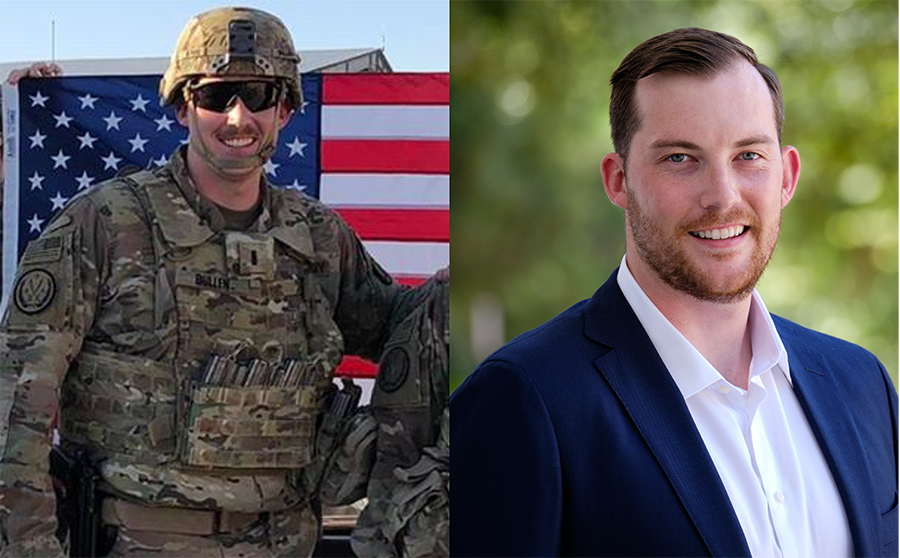
Chase Bullen
- Emory role: MBA candidate at Goizueta Business School
- Military service: Army captain with five years of experience in infantry and space operations. Deployed to Iraq in 2020-21 in support of the U.S. counter-ISIS efforts.
“My experience in the military made me a resilient leader who was prepared for the rigorous curriculum at Emory University. Throughout my experience in the military, I was regularly thrown into new teams and challenged with ambiguous problems. Although the problems may be drastically different, the ability to both embrace and leverage diversity has been instrumental in navigating the core curriculum at Goizueta Business School so far.”
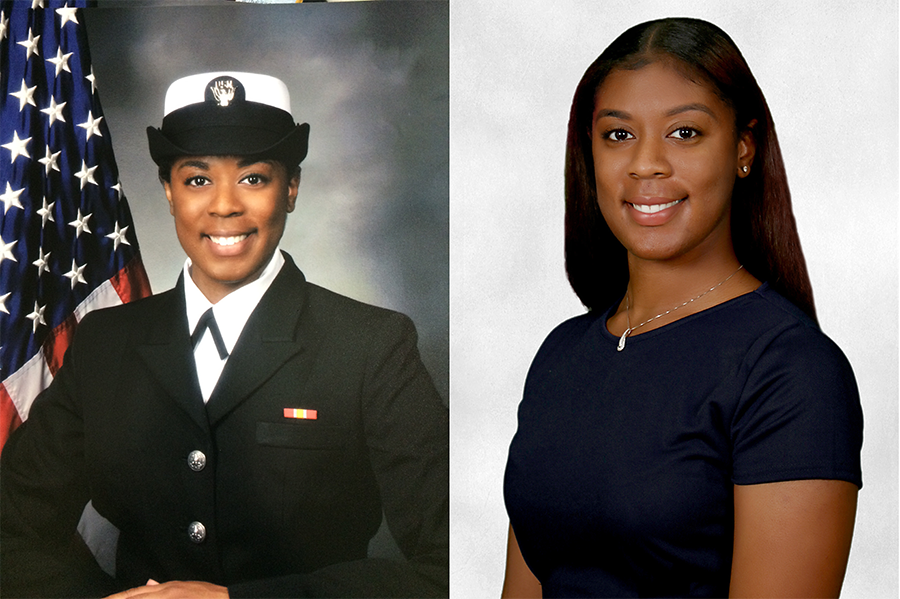
De’Miah Greene
- Emory role: Masters of nursing student in the Nell Hodgson Woodruff School of Nursing
- Military service: Enlisted in the U.S. Navy in 2015 as a hospital corpsman and worked various roles within military health care. Served onboard the USS Mercy during their COVID response mission. Currently a reservist in the U.S. Navy Reserves.
“The military is all about getting outside of your comfort zone. When I enlisted, I was definitely out of my comfort zone, but knew this was something that I wanted to do. While serving, I was given the chance to pursue opportunities that I would not have had as a civilian. Working in a leadership role and consistently engaging with a diverse population has given me the tools to effectively communicate and lead others. As an Emory student, the skills that I developed as a sailor have given me structure and the ability to display honor, courage and commitment — the Navy Core Values — in all things that I do.”
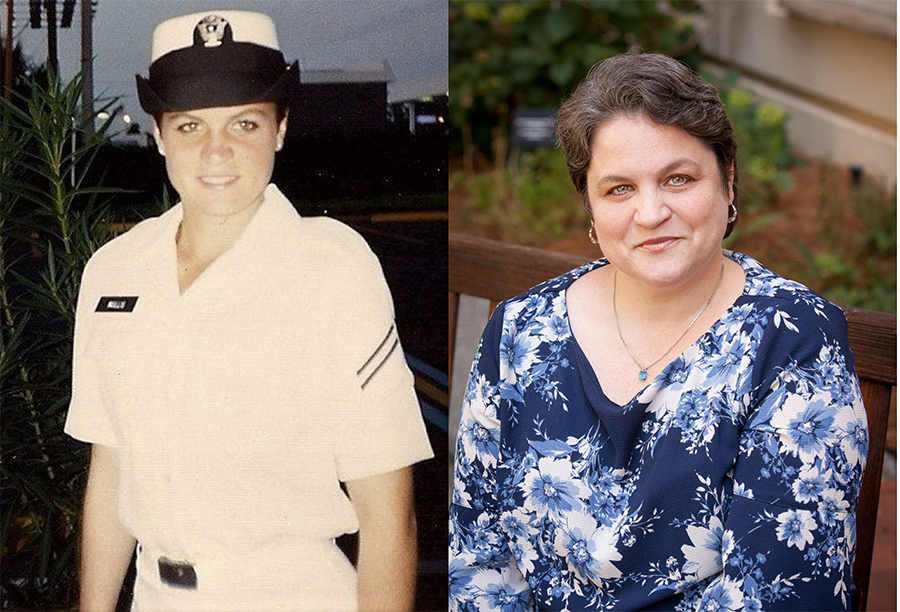
Desiree Mullis Clement
- Emory role: Assistant dean for graduate clinical programs and director of the Nurse Midwifery Program in the Nell Hodgson Woodruff School of Nursing
- Military service: U.S. Navy hospital corpsman and served on the ambulance crew for Bethesda Naval Medical Center (now Walter Reed) in Bethesda, Maryland.
“I have been able to transition my initial skills learning in the areas of teamwork, time management, initial health care training skills and leadership into my current role as assistant dean. The skills I acquired throughout my couple of years in the Navy have served me well throughout my career within nursing and later as an advanced practice registered nurse in my roles as a certified nurse midwife and family nurse practitioner.”
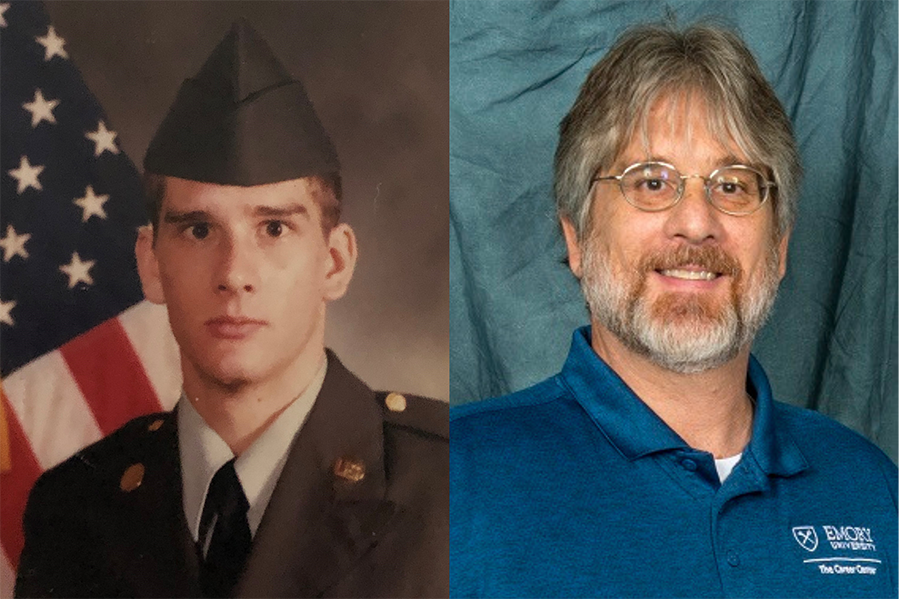
Don Cornwell
- Emory role: Director of career services, Campus Life
- Military service: Veteran of the United States Army; served with the Headquarters Battery of the 1st Battalion, 43rd Air Defense Artillery Regiment, as a multichannel communications operator (31M) for the Information and Control Center of a Patriot Missile System in Fort Bliss, Texas. Also had a temporary duty assignment at White Sands Missile Range in New Mexico.
“My time in the military instilled in me the value of services to others. The 1/43 Regiment motto is ‘Sustinemus’ (‘We support’), and that belief has clearly carried over into my professional life at Emory University. I enjoy supporting Emory undergraduates in their self-discovery and career aspirations as well as providing service to the mission of Emory — ‘to create, preserve, teach and apply knowledge in the service of humanity.’”
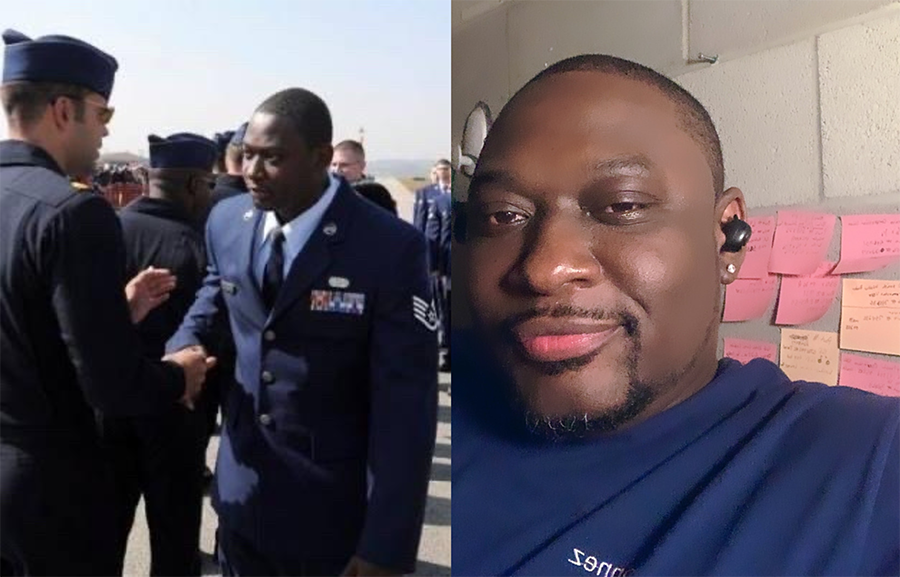
Donnez Johnson
- Emory role: Zone supervisor at Clairmont campus, Campus Services
- Military service: 11 years in the U.S. Air Force as a water and fuels service technician.
“As zone supervisor on the Clairmont campus, I oversee and ensure all the buildings are properly maintained. My team handles all the service calls for maintenance, provides preventive maintenance and works toward the overall safety and quality of life for students and residents. My experience in the Air Force has helped me become a better professional as a maintenance technician and maintenance supervisor. The training I received in the Air Force has allowed me to lead the team in all aspects of my role at Emory. It is because of those experiences that I can be in the position to be the best possible person for the job.”
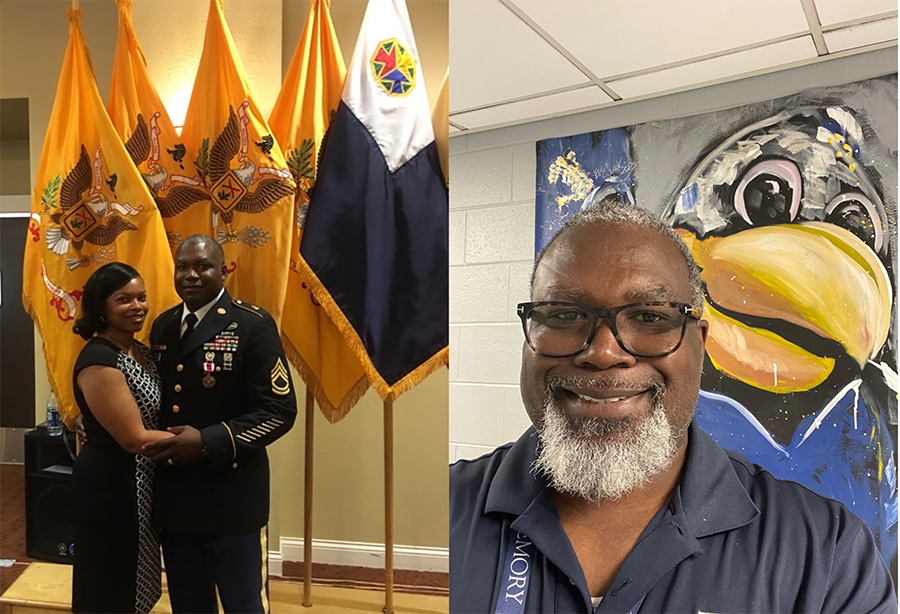
Jeff Anderson
- Emory role: Transportation manager at Oxford College, Transportation Services
- Military service: U.S. Army from 1991-2017. Upon retiring, had achieved every rank up to sergeant first class and held every position from squad leader to first sergeant.
“The military prepared me for my current career by giving me leadership skills on multiple levels. I’ve been in various leadership positions, from supervisor to manager. I’ve worked around senior executives. My actual job at Military Occupational Specialities was in transportation. So, 26 years of military service — and me being in transportation for 24 years — has prepared me for my current position. I’ve worked with railroads, trains, buses, shipyards and more.”
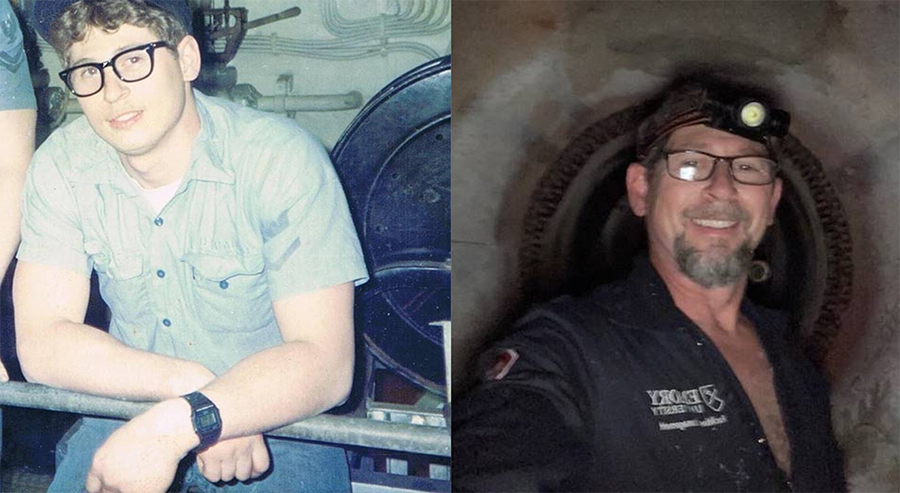
Jody DiCarlo
- Emory role: Manager of plant operations, Campus Services. Manages the steam plant and campus heating operation; the shop makes all the steam that is distributed for heating and sterilization on campus.
- Military service: 10 years with the U.S. Navy, stationed on the East Coast and the Mediterranean Sea. Second class petty officer and operated the main propulsion boiler for the ships’ power.
“At Emory, the main function of the steam plant is to make steam from the use of boilers. This is exactly what I did in the Navy — the only difference is I get to go home every night.”
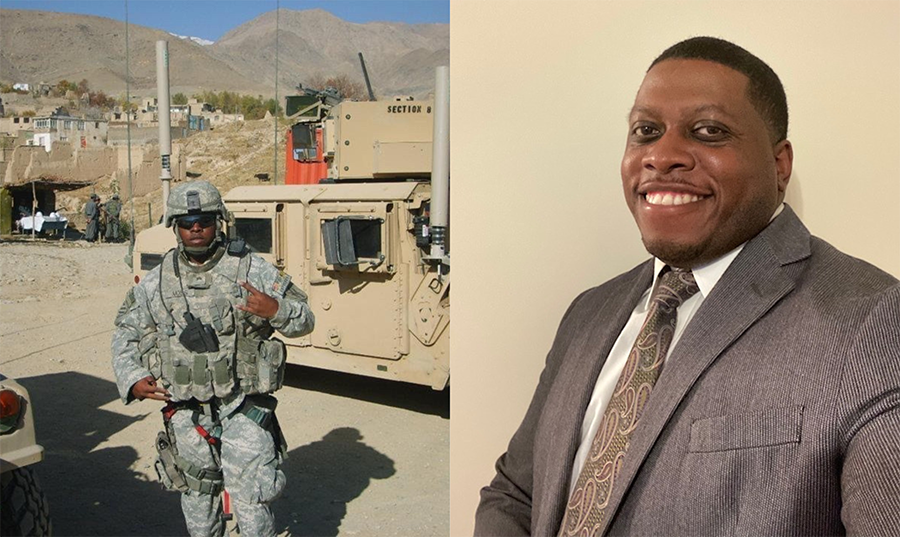
Joshua Moss
- Emory role: Outreach coordinator, Emory Healthcare Veterans Program
- Military service: Joined the Georgia National Guard in May 2001 at the age of 17. Initially signed up as an infantryman and later changed jobs to heavy wheel mechanic. Deployed to Iraq in 2005 and to Afghanistan in 2009. Was part of a recovery team in Iraq, assisting in recovering equipment that was damaged from enemy combativeness. In Afghanistan, served on a personal security detail to protect high-ranking military and civilian officials.
“My time in the military has impacted my experience at Emory in a significant way. It has given me the ability to be relatable to many of the veterans we serve and the issues veterans face on a daily basis. I have been able to transfer my learned military professionalism and work ethics to my current job role, which has helped me tremendously in fulfilling my job duties here at Emory.”
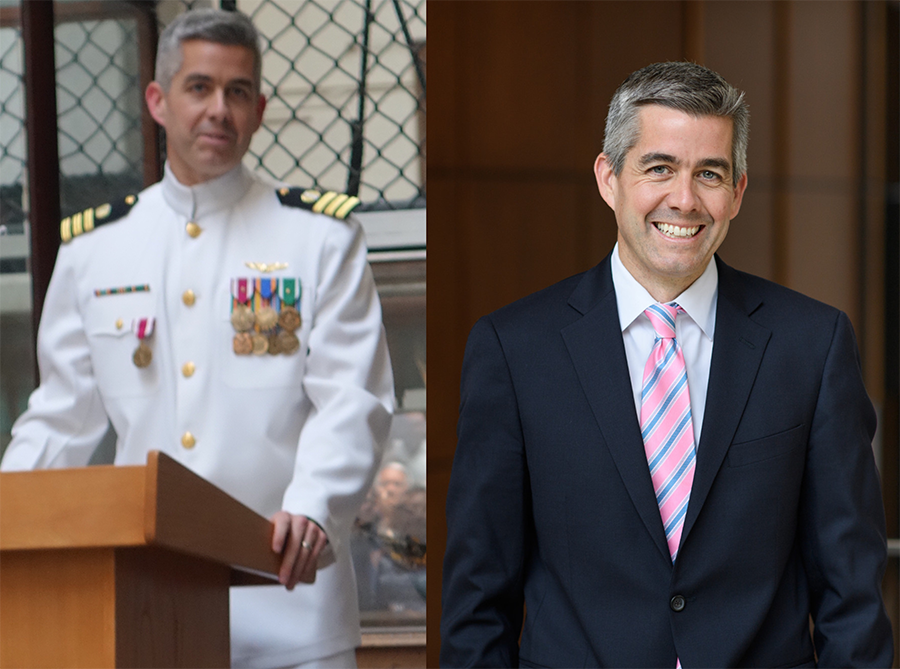
Mark Nevitt
- Emory role: Associate professor, Emory University School of Law
- Military service: 20 years in the Navy as a tactical jet aviator and as a Judge Advocate General. As an aviator, flew more than 1,000 flight hours, accumulated more than 290 carrier-arrested landings and was awarded the Air Medal for “meritorious achievement in flight operations and completion of 50 combat missions in the face of hazardous flying conditions.” As a Judge Advocate General, served as an environmental attorney, criminal defense attorney, ethics attorney and served as the senior legal advisor for the U.S. investigation into the Iranian detention of U.S. sailors.
“The Navy is all about service, leadership and sacrifice for the greater, common good. I view law school teaching as just a different kind of service to the legal profession and the Emory Law community. The Navy really emphasizes mentorship and building future leaders. I try to bring that service mindset as I seek to mentor, lead and hopefully inspire the next generation of legal professionals.”
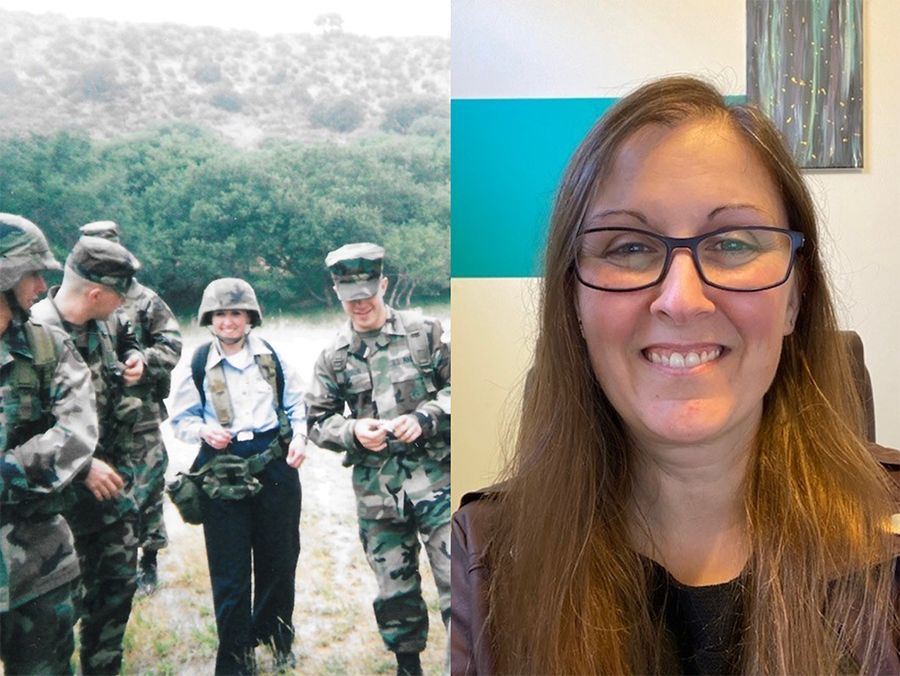
Nichole Trahan
- Emory role: Clinical regulatory specialist, Winship Cancer Institute of Emory University
- Military service: Enlisted in the Navy as a cryptologic technician interpretive, specialized in Arabic linguistics and culture. Served in this position for more than six years as an air crewman earning the Enlisted Aviation Warfare Specialist insignia and completing Survival, Evasion, Resistance and Escape (SERE) training. Deployed on a regular basis to a number of locations abroad.
“The regulatory department at Winship works 100% remotely, which brings along several challenges that my experience in the military helps me overcome. Specifically, remote workers can lose a sense of routine and community as well as lack a clear delineation between work and home life. Experiences with long deployments and then returning home to normalcy afforded me the opportunity to hone skills that allow me to adapt quickly and find unique ways to overcome these barriers, all while working efficiently and avoiding burnout. The fast-paced environment in military missions taught me to expeditiously evaluate situations and processes and create tools to improve productivity and focus.”
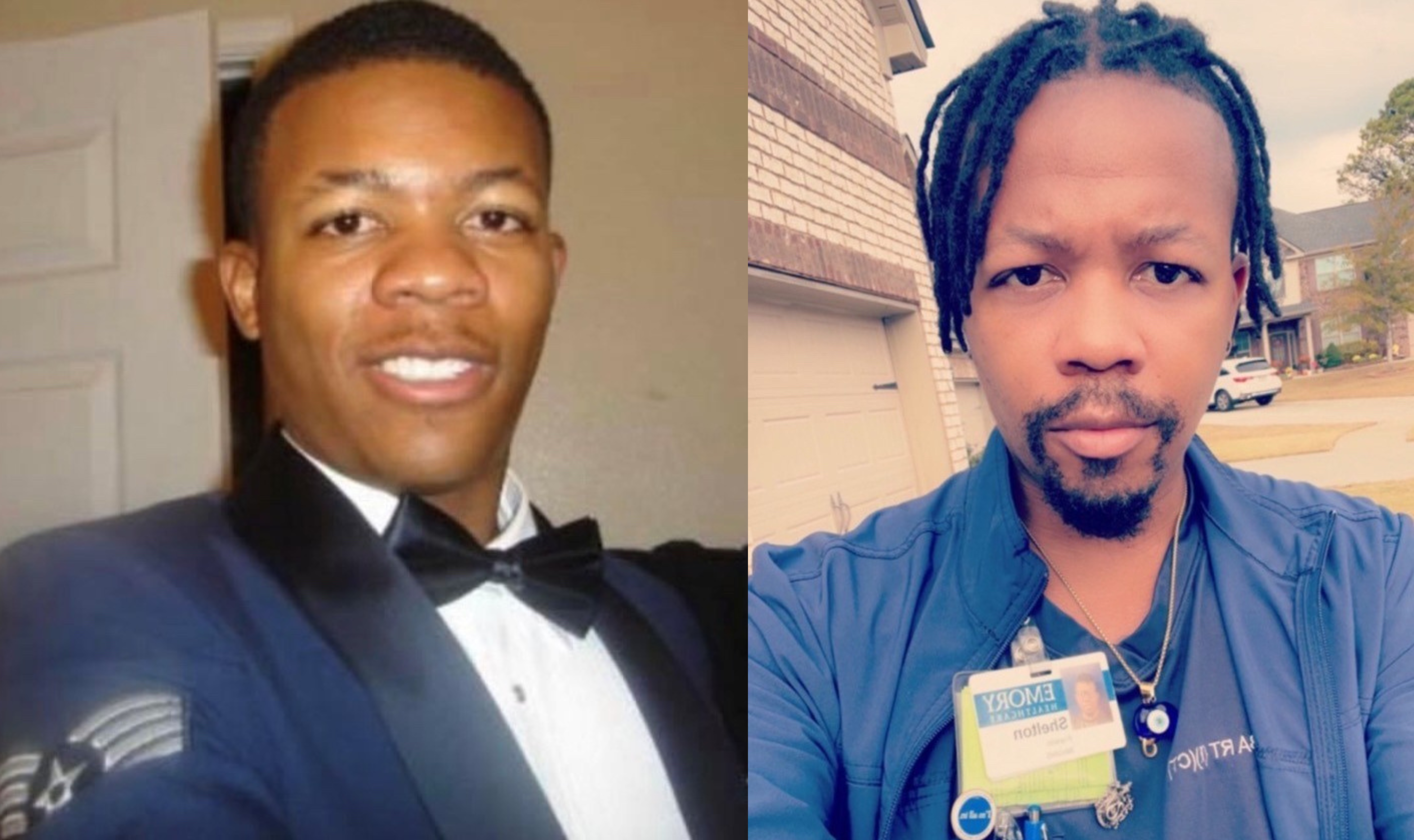
Shelton K. Franklin
- Emory role: Radiology services manager, Emory University Hospital Midtown
- Military service: Eight years in the U.S. Air Force as an X-ray/CT tech, Airman of the Quarter recipient, radiology student preceptor and assistant instructor. X-rayed thousands of basic cadets annually during training at the U.S. Air Force Academy. Base National Anthem singer, Tops in Blue singing contestant/contender, HAZMAT team member, Base Honor Guard non-commissioned officer in charge. X-rayed victims from the Pentagon on 9/11 during assignment at Andrews Air Force Base on 9/11/01. Exited active duty honorably as a staff sergeant (E-5) and a non-commissioned officer in charge of CT imaging.
“My experience in the U.S. Air Force has prepared me for my current leadership role here at Emory and for future growth and roles by fostering my dedication to esprit de corps, nurturing my natural leadership traits, and providing me the support and education that I can pay forward to staff and students. The U.S. Air Force provided me with the means to complete my undergraduate and graduate degrees and has given me the latitude to begin my postgraduate/doctoral degree program. The U.S. Air Force values of ‘Integrity first, service before self, and excellence in all we do’ have been engrained in my psyche and I carry those attributes forward daily in execution of my duties.”
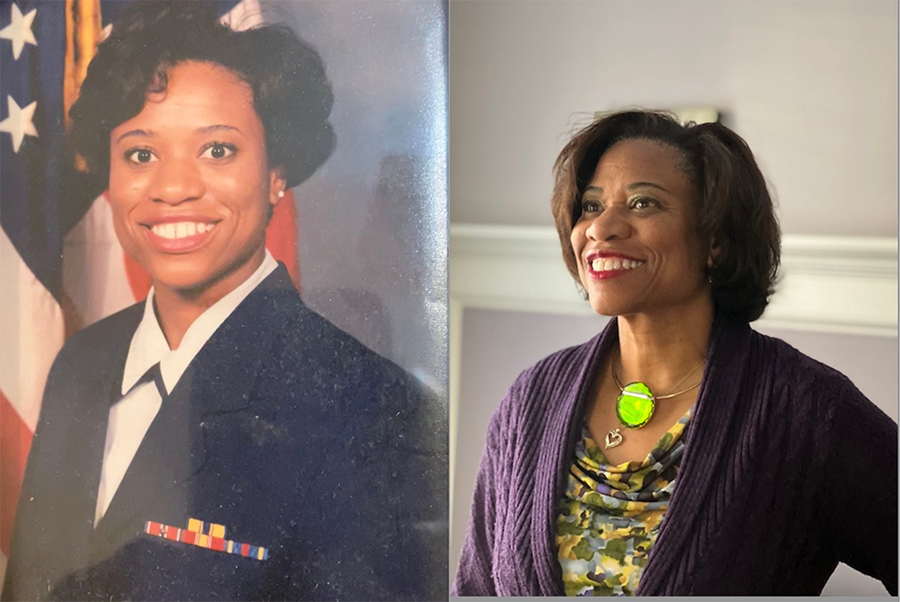
Trisha Nelson
- Emory role: Business analyst III supporting Business and Administration/Data Analytics & Strategic Support and Finance & Treasury/Enterprise Financial Systems, Department of Data Analytics and Performance
- Military service: Completed Air Force ROTC at UGA in 1987. Commissioned as a communications-computer systems operations and programming officer. Served in a variety of positions including squadron officer school instructor at Air University, deputy chief operations officer at the National Military Command Center at the Pentagon, and experimentation project manager at the Defense Threat Reduction Agency. Retired as a major in 2007 after 20 years of service.
“I published articles and did countless presentations, like a true Powerpoint Warrior! Those experiences gave me confidence in my ability to communicate effectively in all my Emory positions. While serving in Seoul, South Korea, in 2002, I discovered project management (PM) as a discipline and realized that I had basically been doing it most of my career. After I retired, I got my project management professional (PMP) certification, and the rest is history. I was hired at Emory to work as an information technology (IT) PM in 2009 and have enjoyed my time working on more than 60 projects. One of my favorites involved helping Emory transition its learning management system from Blackboard to Canvas. What’s more, I was attracted to Emory because of its ‘higher calling’ as an institution. It’s awesome to be a small part of accomplishing its mission ‘to create, preserve, teach, and apply knowledge in the service of humanity.’”
Emory’s Support for Veterans

There are initiatives for veterans across campus and through Emory Healthcare.
Through the Yellow Ribbon program, Emory provides funding to help post-9/11 veterans pay for educational expenses beyond what is covered by the G.I. Bill. Learn more about veterans education benefits at Emory.
Undergraduate students planning military careers can participate in Army or Air Force ROTC through a cross-enrollment agreement with Georgia Tech and Kennesaw State University. Students complete their undergraduate degrees at Emory and military training at Tech.
The Emory Healthcare Veterans Program, part of the Emory Brain Health Center, provides expert, collaborative care for post-9/11 veterans and service members dealing with a variety of mental health concerns, including post-traumatic stress disorder (PTSD), traumatic brain injury, military sexual trauma, depression and anxiety. Treatment options include traditional outpatient and intensive outpatient programs that integrate care in multiple areas including psychiatry, neurology, sleep, rehabilitative medicine, wellness and family support.
See how the Emory Healthcare Veterans Program helped one veteran and his wife cope with the invisible wounds from his military service.
Emory’s Nell Hodgson Woodruff School of Nursing is one of 18 nursing schools nationwide selected for the elite Veteran Affairs Nursing Academic Partnership (VANAP) through the U.S. Department of Veterans Affairs. Undergraduate and graduate nursing students selected for the program gain valuable training in providing quality care for our nation’s veterans.
The Emory Law Volunteer Clinic for Veterans provides pro bono legal services for veterans, assisting them and their families with legal issues including disability claims before the Veterans Administration and subsequent appellate proceedings, estate work and discharge upgrades before the Department of Defense.
Learn how the Emory Law Volunteer Clinic for Veterans serves those who served.

